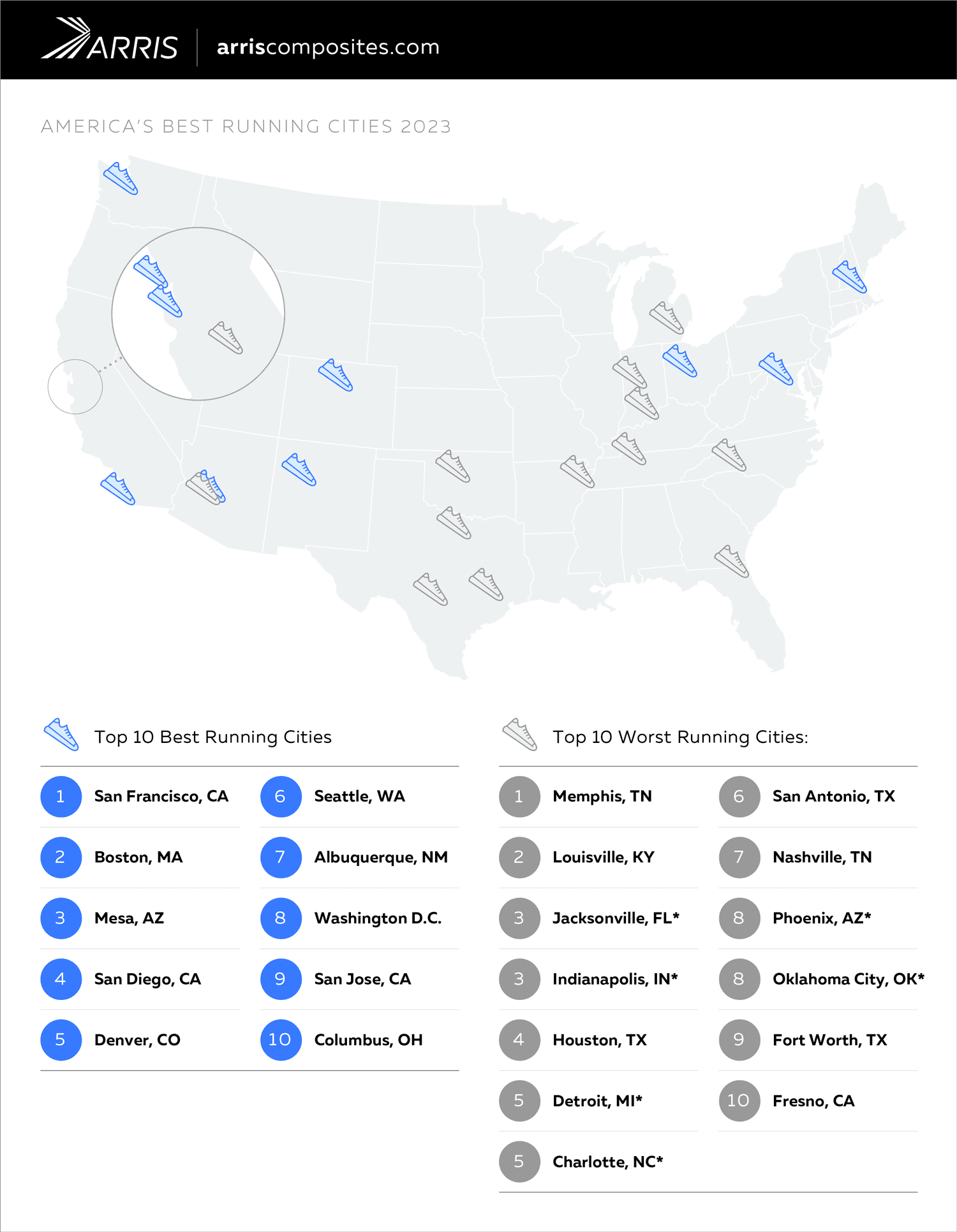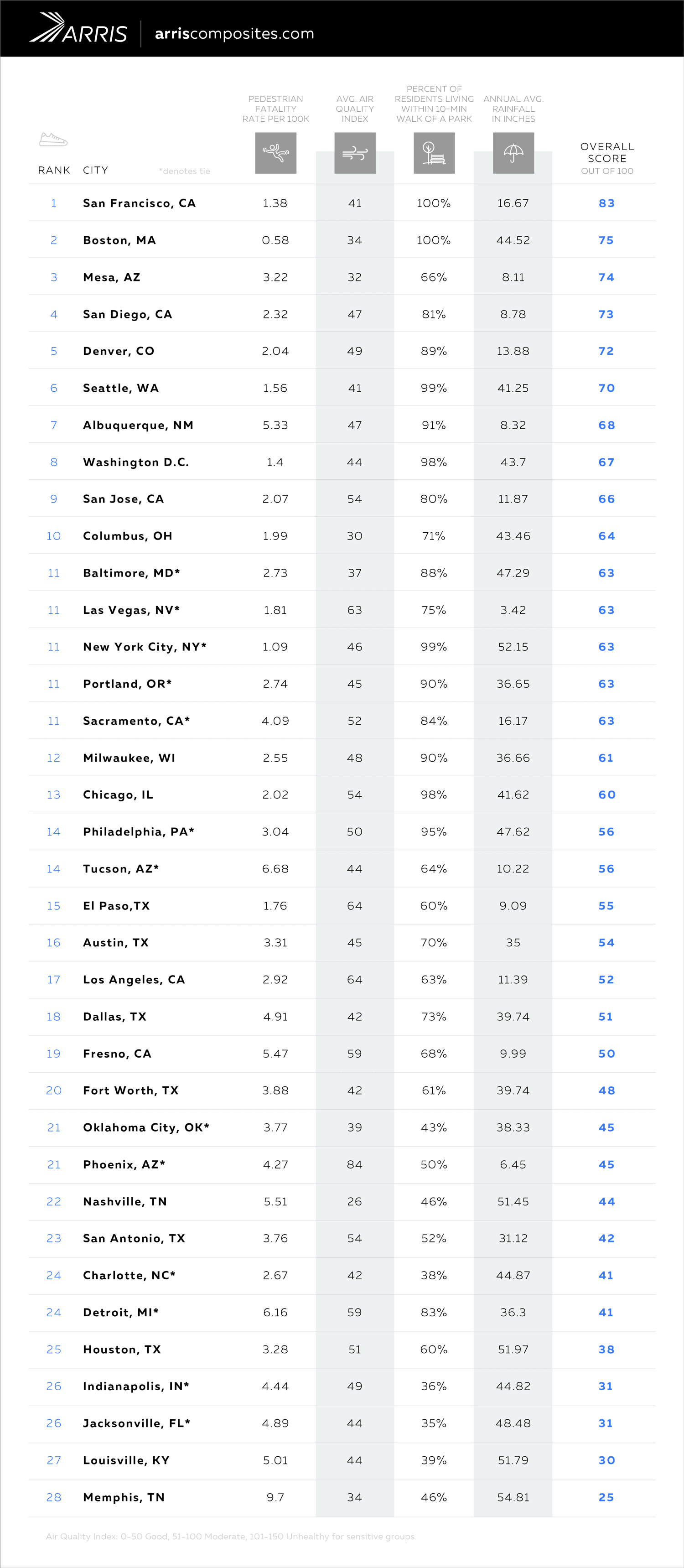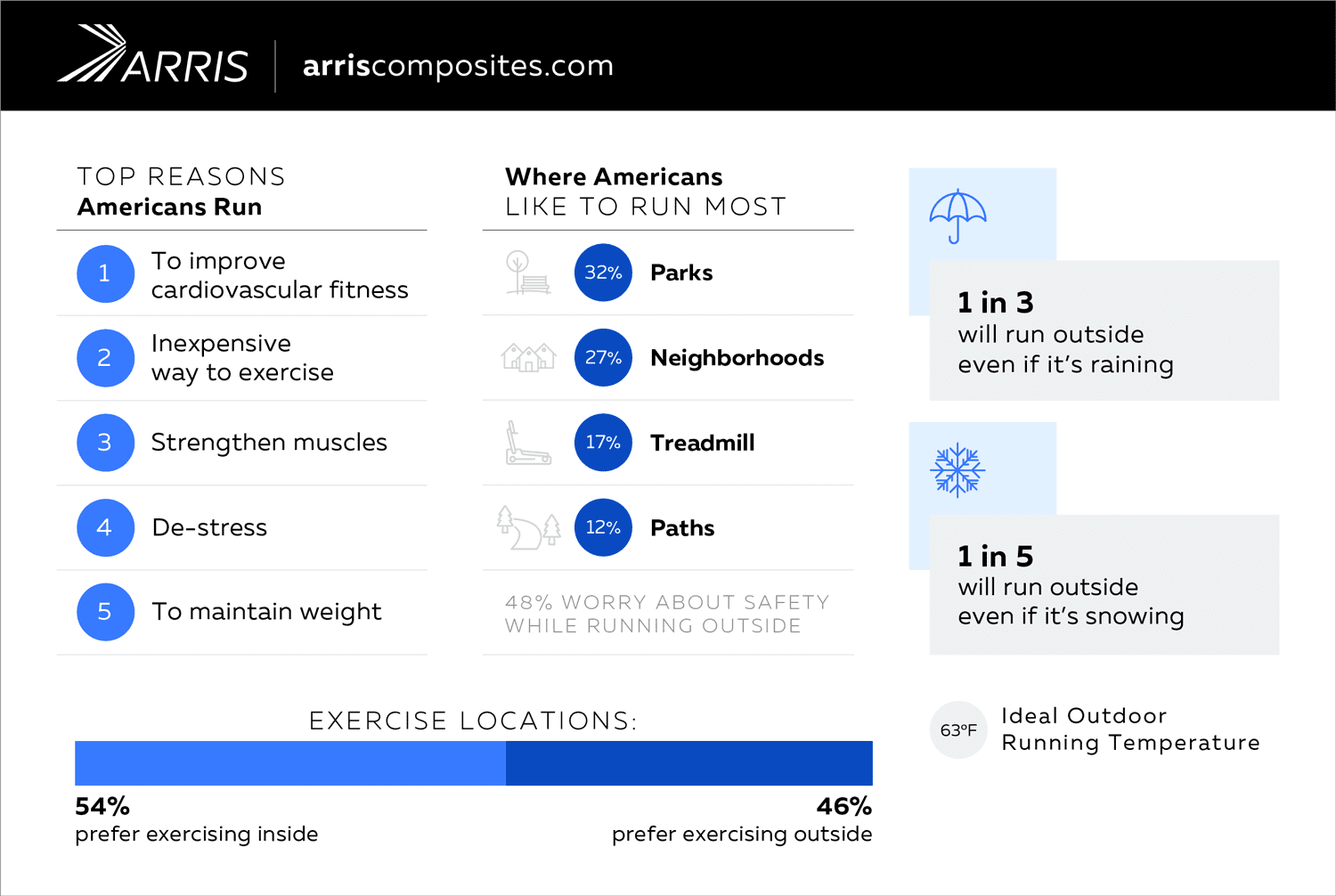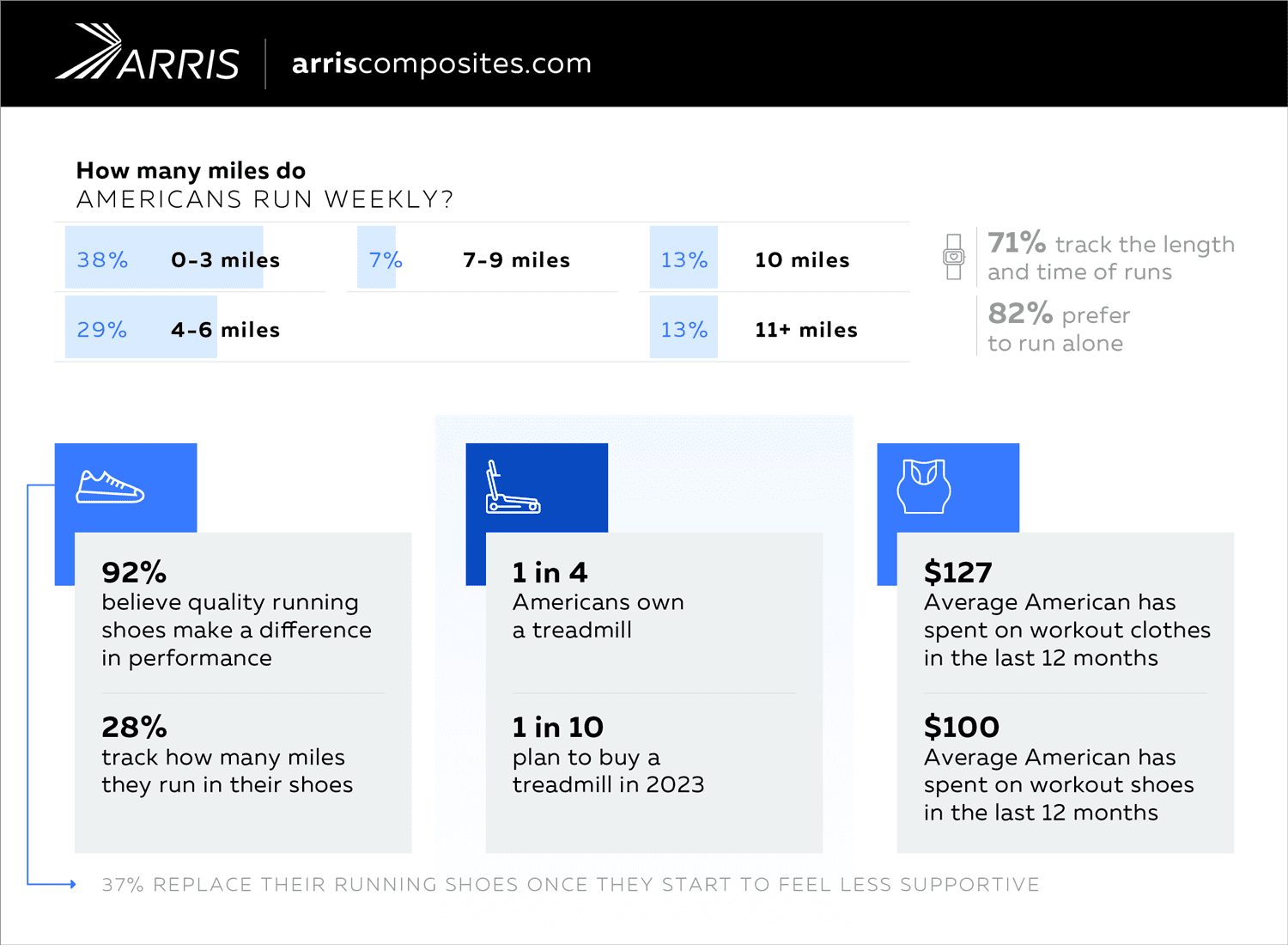San Francisco Ranks #1, America’s Best Cities for Runners
ARRIS Composites’ new report reveals the best cities for runners in the U.S. We analyzed datasets and surveyed 1,000 Americans to learn about their running habits in 2023.
America’s 10 Best Cities for Runners in 2023: San Francisco Ranks #1
For almost half of Americans, running is a way to exercise, reenergize, or even de-stress. Here at ARRIS, performance is critical, whether you’re an elite athlete or a running enthusiast. Our sporting goods team works with your favorite athletic brands to create lighter, stronger, better-performance footwear by way of manufacturing advanced carbon fiber plates—this is not your everyday plate for running! Many of us at ARRIS are runners, too, always looking for the best running experience, whether it’s leveling up our training routine, gear, or simply our favorite running spots. We recently analyzed several factors to discover the best cities for running in America for 2023. Check out our survey below of more than 1,000 people to learn about their running habits.
Best and Worst Cities for Runners in America

Almost half (43%) of Americans currently run. Our report found the top city in the U.S. for runners is San Francisco, California. San Francisco’s good air quality, access to parks, and low pedestrian fatality rate all contributed to their number one ranking.
Coming in second is Boston, followed by Mesa, San Diego, and Denver. California is home to the most running cities with three Golden state cities ranking in the top 10 (San Francisco, San Diego, and San Jose). When it comes to the top 10 least friendly cities for runners in the nation, Memphis, Tennessee ranks number one and Louisville, Kentucky is second. Jacksonville, Florida, and Indianapolis, Indiana tied for the third least friendly running city in the U.S. (note that cities with a tied ranking are marked with an asterisk).
America’s Best Running Cities Ranked

In order to find the best running cities in the U.S., we analyzed cities with a population of more than 500,000. We then conducted a weighted ranking using the following factors: pedestrian fatality rates, average air quality index, percent of residents living within a 10-minute walk of a park, and average annual rainfall.
San Francisco earned a top score with 100% of the population living within a 10-minute walk of a park. Several other West Coast cities also made the top 10 including Mesa, Arizona, San Diego, Denver, Seattle, and Albuquerque. While many of the best running cities are located in the West, several other cities in the Midwest and East Coast made the top 15 including Boston, Washington D.C., Columbus, Ohio, Baltimore, New York City, Milwaukee, Chicago, and Philadelphia.
As for the least runner friendly cities, Texas is home to three of the top ten. Memphis’ high pedestrian fatality rate and low percentage of residents living close to a park contributed to the city earning the title for worst running city in the U.S.
What Motivates Americans to Run?

In a survey of more than 1,000 people from across the U.S., we learned that the top reasons Americans run are to improve cardiovascular fitness, because it’s inexpensive, to strengthen muscles, de-stress, and to maintain weight. Getting out in nature is not only good for the soul but good for your health. Nearly 1 in 3 (32%) Americans like to run in parks, 27% prefer neighborhoods, 17% like running on treadmills, and 12% prefer running on paths.
Many runners say they’ll brave the elements in order to run outside: 1 in 3 will run even if it’s raining, and 1 in 5 will run if it’s snowing. The ideal outdoor temperature among runners is 63ºF. While 46% of runners prefer exercising outside, nearly half (48%) worry about their safety while running outside.
Running Habits 2023

On an average week, 38% of runners in America run 0-3 miles, 29% run 4-6 miles, 7% clock 7-9 miles, and 26% run more than 10 miles. Nearly 3 in 4 (71%) of runners track the length and time of their workouts. While some people find strength in numbers, 82% of Americans prefer to run alone.
When it comes to equipment, 92% believe quality running shoes make a difference in performance. More than 1 in 4 (28%) track how many miles they run in their shoes. Despite this, 37% only replace their running shoes once they start to feel less supportive. A quarter of Americans currently own a treadmill, and 1 in 10 plan to buy one this year.
Cheers to 2023! We hope you hit your running goals this year.
Check out other surveys: Portable Electronics Outlook 2023 + America’s Interest in Virtual & Augmented Reality
Methodology + Media: In order to be included in the analysis, cities needed to have a population of more than 500,000. To determine our ranking, we compared the cities across four key metrics: average monthly air quality index, pedestrian fatalities per 100,000 people, average annual rainfall, and percentage of residents living within a 10-minute walk of a park. We graded each metric on a 100-point scale. To determine an overall score, each city’s weighted average was calculated across all metrics. Kansas City, MO was not included in the analysis due to a lack of data. In January 2023, a survey of 1,002 people from across the U.S. was conducted. The average age was 40 years old, with 49% identifying as male, 48% as female, and 3% as non-binary or transgender.
Sources: U.S. Census Bureau, U.S. Environmental Protection Agency, National Highway Traffic Safety Administration, Trust for Public Land, and the National Oceanic and Atmospheric Administration
For media inquiries, contact media@digitalthirdcoast.net or media@arriscomposites.com.
Fair Use: When using this data and research, please attribute by linking to this study and citing ARRIS Composites (arriscomposites.com).
Image Credit: ARRIS + Adobe Stock
Start a Conversation: Connect with the ARRIS team today—schedule a discovery call or request a facility visit by reaching out using our contact us page.
